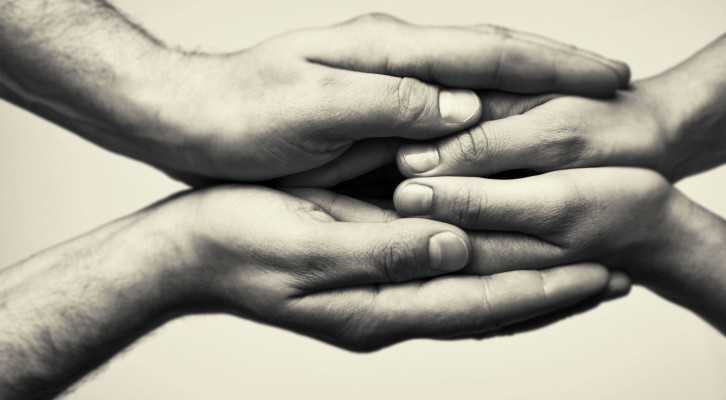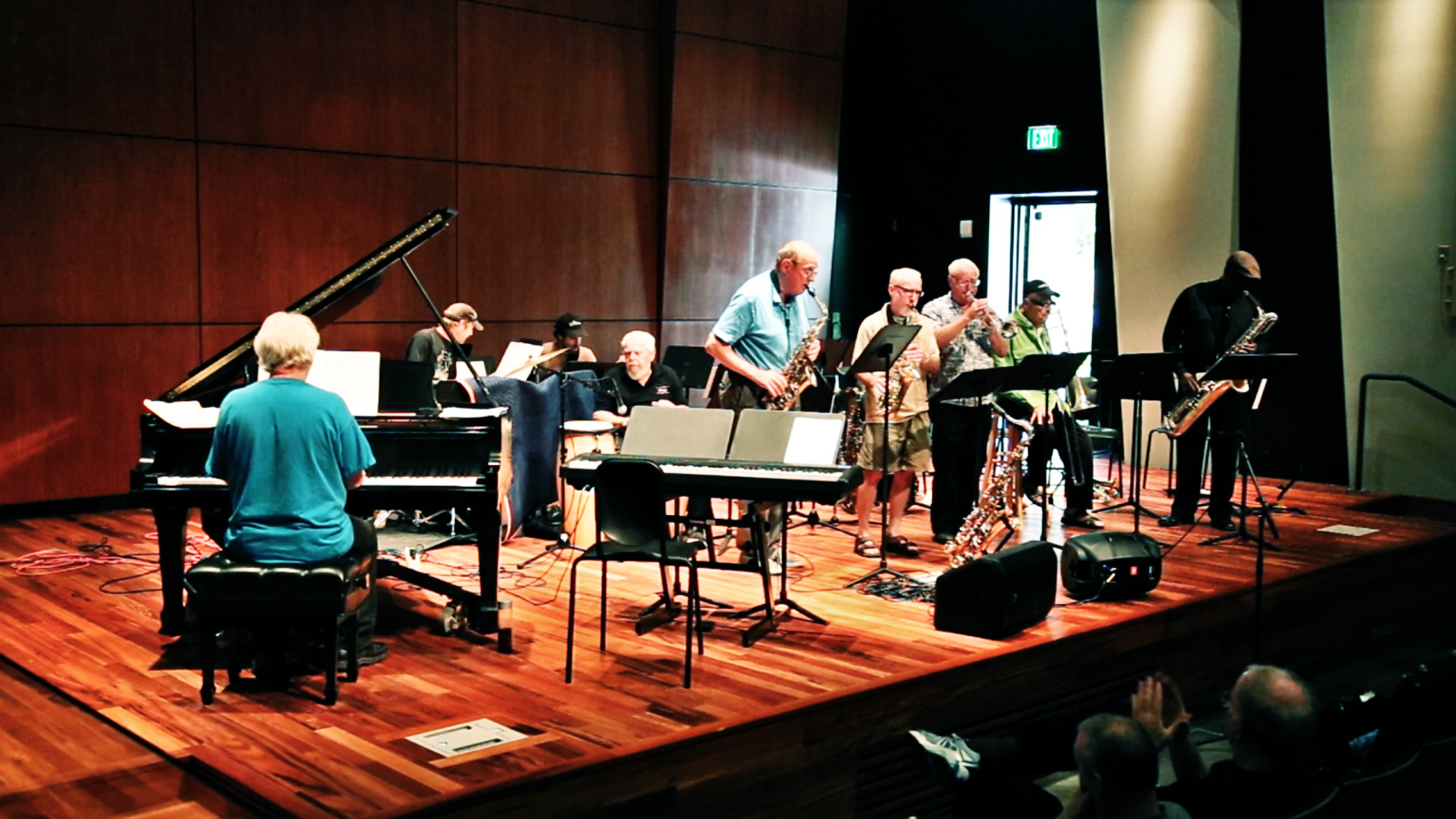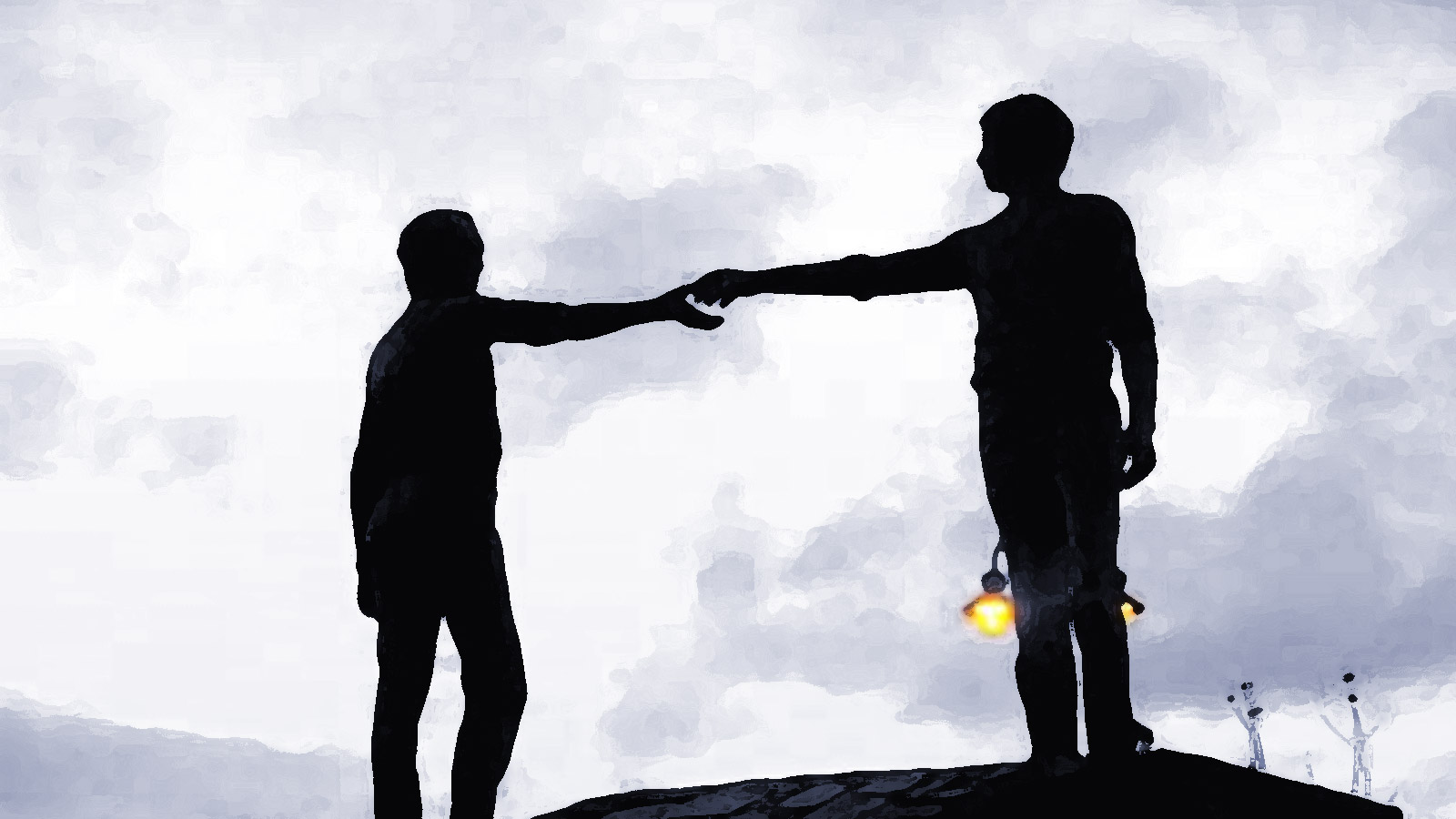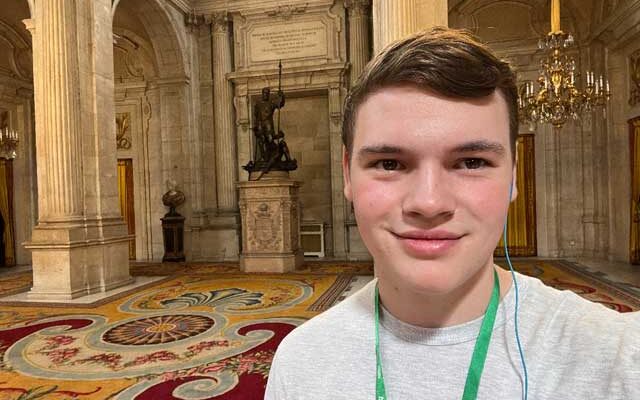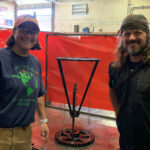New Year’s is my favorite holiday. You might assume that’s because of the revelry, fireworks, get-togethers, and counting down the new year. All that is fine. And fun. What appeals to me most about the turning of the calendar, however, is reflection. For me, 2015 was outstanding, maybe the best year of my life. Yet I think about the many challenges facing us as individuals, as a college community, and as a country. 2015 was also another year of political polarization, violent attacks (including on community college campuses), and the dehumanization of those seen as the the enemy of the hour—immigrants, refugees, Muslims, Christians, people of color, whites, gays, straights, Democrats, Republicans, et cetera, ad nauseum. Scapegoating is alive and well. At the same time, studies show something astounding. The world has never been more peaceful in our entire history. Yes, I said peaceful. How do we reconcile this with the constant barrage of violence in the media? The media also spreads empathy and compassion worldwide through art—film, literature, fine art, and even news reporting.
I explored empathy as a scholarly interest because of a number of experiences as a student and teacher, some of which showed me empathy as a necessary component of relationships with students, friends—everyone, really. I also saw failures of empathy, in class and beyond. I had a hard time understanding that failure. Shouldn’t understanding others’ perspectives be a primary moral imperative? Shouldn’t we all be empathetic and compassionate people? Why then does empathy fail? And just what is it, anyway? Those were the questions that drove my doctoral dissertation and drives my intellectual curiosity today.
Empathy is the word of the day in academia, taking hold as a subject worthy of serious study even in the hard sciences. The idea of empathy, especially in its connection to compassion, has been around for centuries, but the term itself originated in art philosophy in the late 19th century. Psychologists in the early 20th century took it even further when they adopted the term and used it in the sense we think of today. Empathy took on new life in the late 1990s when neurophysiologists in Italy discovered mirror neurons in primates, neurons that not only fire when an animal acts but when it sees an action by another, in essence, mirroring the behavior the other animal. Humans do this too.
Not everyone in academia sees empathy as worth exploring. I was beyond surprised when I discovered many of my fellow humanities scholars disdained it. They have long argued that culture and social position limit empathy and compassion, rendering it not only useless but damaging and dangerous. On one hand, questioning empathy moves it away from the cliché of walking in another’s shoes. However, in many college courses, the reading material we teachers provide is meant to elicit an empathetic, compassionate response from students. For all our good intentions, scholars doubt the ability of most people, students especially, to read beyond their own cultural lens. Unexamined empathy, these scholars argue, leads to self-centered interpretations of art and literature rather than a genuine understanding of those from other cultures and ethnicities.
Do we humanities professors then throw empathy out with the proverbial bathwater? Is it really useless or damaging? My confession: I believe in empathy. Not unproblematically. Not universally for everyone, everywhere, all the time. Not as a solution to all the world’s problems. But to me the study of empathy reaches beyond the writing classroom, the humanities courses students take in their first couple of years of college. The study of empathy is the study of hope for a more peaceful world. Evolutionary biologists claim empathy is a building block of social cohesion and stability. I believe them. I invite my students to question their immediate empathetic and compassionate reactions in order to question themselves and their world. It is then that the power of fine art, of literature, of music changes both artistic works and us into something more. And, hopefully, better, especially as another new year unfolds.
About the Author
 Dr. Lucas started college as a returning adult student after a long career waiting tables. She earned her Bachelor’s and Master’s in English from Eastern Washington University (2003), and earned her Ph.D. in English from Indiana University of Pennsylvania (2011). Her dissertation Not Just a Feeling Anymore: Empathy and the Teaching of Writing was submitted for the James Berlin Memorial Outstanding Dissertation Award. In October 2007, the Two-Year College Association honored her with the Lisa Ede Award for Teaching Excellence. She is a scholar, poet, and essayist and taught in Guilin, China for a time. When not working, Dr. Lucas enjoys writing, reading, cooking, art, and singing in Peninsula College’s jazz choir.
Dr. Lucas started college as a returning adult student after a long career waiting tables. She earned her Bachelor’s and Master’s in English from Eastern Washington University (2003), and earned her Ph.D. in English from Indiana University of Pennsylvania (2011). Her dissertation Not Just a Feeling Anymore: Empathy and the Teaching of Writing was submitted for the James Berlin Memorial Outstanding Dissertation Award. In October 2007, the Two-Year College Association honored her with the Lisa Ede Award for Teaching Excellence. She is a scholar, poet, and essayist and taught in Guilin, China for a time. When not working, Dr. Lucas enjoys writing, reading, cooking, art, and singing in Peninsula College’s jazz choir.

